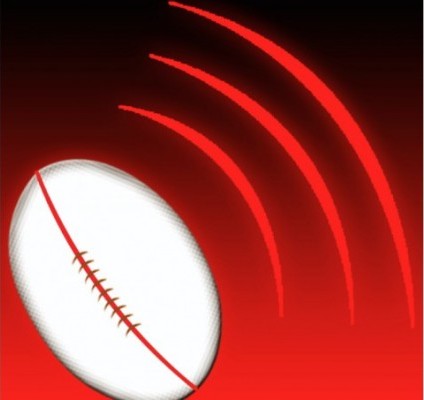Film Exposes Unfairness In Pacifc; We Can Help
Film Exposes Unfairness In Pacifc; We Can Help
Dan Leo's film about the exploitation of Pacific Island rugby players is a must-view.
Released on Amazon Prime, the film, Oceans Apart, addresses how players from Samoa, Tonga, and Fiji are among the best in the world, and prop up many of the world's top professional and international teams, and yet there's no money or support for those specific rugby nations.
Leo, who played for Samoa and was blackballed for blowing the whistle on misuse of funds in his home country, is a compelling filmmaker and talks to several players, coaches, and administrators to get to the bottom of it all. See the trailer below (the link provided on the trailer goes to the UK version of Amazon Prime. You are better off logging in from your home country and searching for Oceans Apart)
But while Leo is a compelling advocate for Pacific rugby players, and helped form the independent organization Pacific Rugby Players Welfare, he is not a journalist. A few times in the film you see that come to the fore as he leaves a key interview kicking himself for not pushing harder. We get it, that's tough, and in the end Leo is too nice a guy to have a direct confrontation. It might be up to others to do that. The film still speaks loudly.
What Does Oceans Apart Say?
1. The format in international rugby where host nations keep 100% of the gate and concessions from a test match, and the visiting team gets nothing does not help poorer rugby nations. There is supposed to be a payback of a return trip but a) the host nation is supposed to pay for the visitors' travel, which can be onerous, b) poorer rugby nations can't charge $100 for a ticket, so they don't make a lot of money on those games anyway, and c) the big-name nations don't return the favor anyway.
2. Players should be mortified at the inequity of pay at the international level. Former England flanker James Haskell is the best voice in the film about this, as he is informed that when Samoa played at Twickenham in 2017 the England players got £22,000 (US$29,400) for a match fee, and the Samoan players got £400. True, some US players would love $535 for a match fee, but regardless there's a distinct difference in how these players are paid. In the film, Haskell was very humbled by that revelation and seemed to indicate that England players might be open to taking a small pay cut to help the Samoans.
3. Sports governing executives and politicians run the risk of being corrupt or, at the very least, indifferent to corruption and worried about rocking the boat. Leo points out that in the Pacific Island nations, very often the head of the government is also the head of the rugby union. This is too much power for one person. And, most importantly, if you think you're solving problems by giving a rugby union more money, you're in for a surprise, because those monies have a tendency to find themselves in the pockets of the powerful and their friends before it gets to where it's needed. World Rugby CEO Brett Gosper kind of shrugged at fixing this, saying you can't tell a prime minister what to do. That's true, but you can tell a rugby union what to do.
4. Leo talks about shifting nations, and that is an important topic to revisit. Major nations, especially New Zealand, can throw one cap at a player and then that player can't play for another nation; he's essentially uncappable. The USA benefits from the rules here in that if you're born in American Samoa you can play for the USA, or you can play for American Samoa—there's no other paperwork to fill out. But if you play once for the USA and are never picked again, you can't then go play for American Samoa.
These are all excellent points brought up by Leo and he brings them up in a relatable, personal way. This is why Oceans Apart is worth seeing.
What Can We Do?
A couple of things.
When it was suggested that Tier 2 nations be allowed to have players who played for Tier 1 nations get one switch back to their nation of heritage (birth, parental birth) Gosper giggled and said he didn't know how to define a Tier 2 nation. This is ridiculous on its face and Leo said so later. World Rugby has been very specific about the different tiers in the game. The eligibility change is one used in Rugby League and isn't that hard to figure out.
Find ways to address the potential for corruption by mixing politics and rugby governance. This is perhaps being addressed already in Tonga where the Tonga Rugby Union and the national government have agreed to establish a joint management committee. Here's hoping.
Look at the financial setup for test matches. World Rugby already has its hand in how test matches are scheduled, but there has to be a way in which no one gets bankrupted playing a game of international rugby. Is there a way to have a pool of money collected to fund a minimum match fee for players? It's complicated because, remember, there are many international rugby matches played in front of small crowds or crowds that don't pay much. Is there a minimum per-tournament fee that the Sevens World Series could help support, thus helping guard against teams like Samoa tumbling from being among the best to being also-rans. (This would be complicated too because if a poor rugby nation knows World Rugby is guaranteeing a payment, then that poor union might not pay anything at all. So you'd probably need a matching funds plan.)
Bring in the fans. What is, instead, there was a public and social media campaign? What if fans showed up at
From 2010 through 2020, we tracked test matches involving Fiji, Samoa, and Tonga, and also threw in the USA, Canada, and Uruguay. Those fix played 501 capped matches (not all were against full international sides, but the vast majority were). Of those, 187 were played on the road, 156 at home, and 158 on neutral territory.
Against Tier 1* opponents, they played 47 away, 25 at home, and 41 on neutral ground (most of those World Cup matches). The lopsided Tier 1 home vs away is exacerbated by the fact that Uruguay's Tier 1 games are all against Argentina, and 13 of the hosted Tier 1 games are in the USA and Canada. Tonga hosted none, and Fiji and Samoa together hosted only eight (Italy three times, Scotland three times, Wales, and New Zealand). Meanwhile, Fiji, Samoa, and Tonga have played at Tier 1 nations 40 times in that span.
Pacific nations have played England at Twickenham six times in non World Cup games, and hosted England not at all. Pacific nations have played Wales at Millennium Stadium five times (not including RWC) and hosted them once (Wales at Samoa June 23, 2017). Pacific nations have played in Ireland and France eight times and not hosted either. They've played New Zealand, Australia, and South Africa (non RWC) eight times and hosted them once.
So the argument here is that playing New Zealand in Auckland or England in London brings more crowds and makes for a bigger event. Great. Then pay the teams attending a fee commensurate with their crowd-drawing power. Why did Fiji play the Barbarians in 2013 in Twickenham? Because 67,000 fans paid to watch them do it.
With major nations bringing in several million dollars when hosting a test match, it's reasonable to come up with an income-sharing plan for Tier 2 nations. And even if there's no official plan to enact such a plan, fans can help. Start #20% and see how it goes. Take #20% signs to games saying you think 20% of your ticket price at Twickenham, Lansdowne Road, Millennium Stadium, Murrayfield, Stade de France, Eden Park, Stadium Australia, or Ellis Park should go to the Tier 2 nation pitching up that day.
(*Tier1 nations means England, Scotland, Wales, France, Ireland, Italy, Argentina, New Zealand, Australia, and South Africa, as well as the Barbarians touring team.)
Dan Leo has exposed inequity among nations in rugby, and pointed out how taking advantage of players from different cultures goes against the professed ethos of the game. So now we should do something about it.












